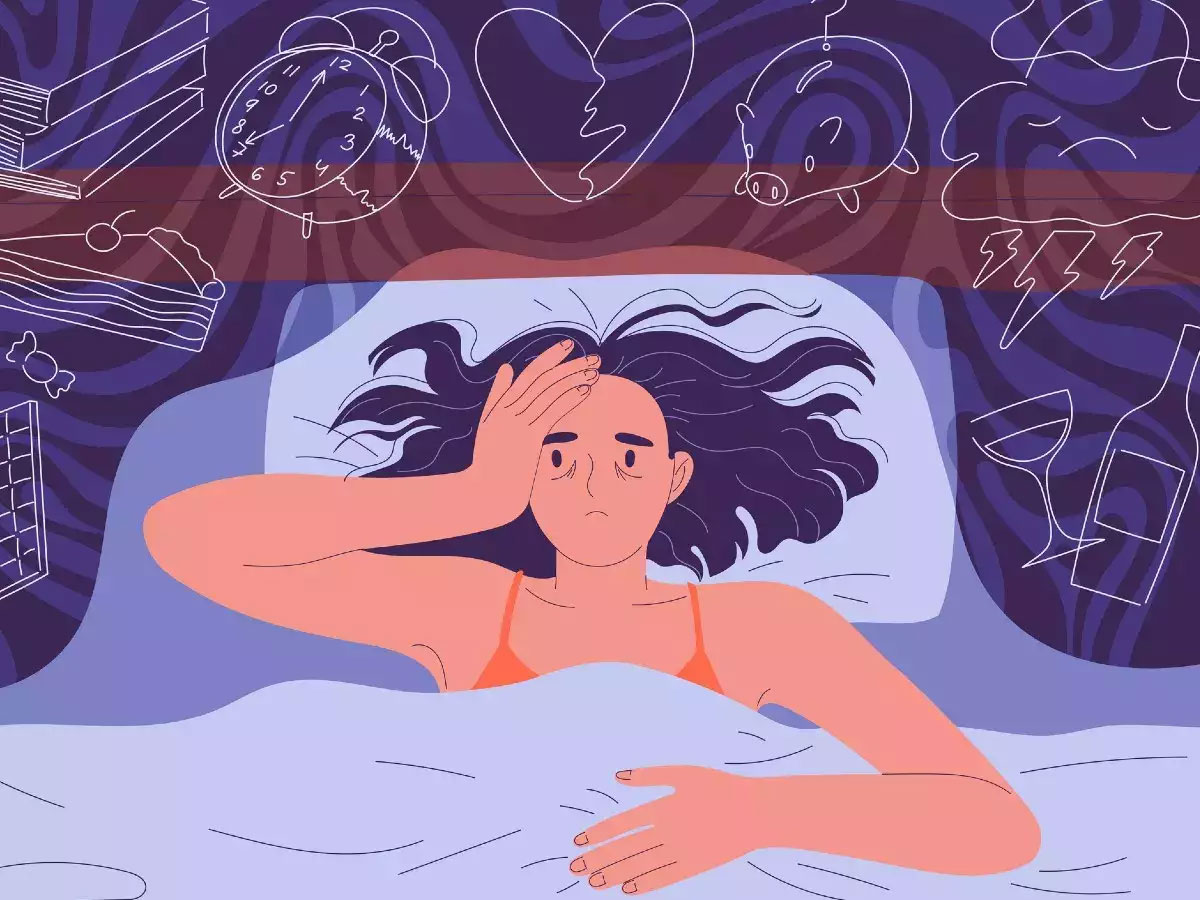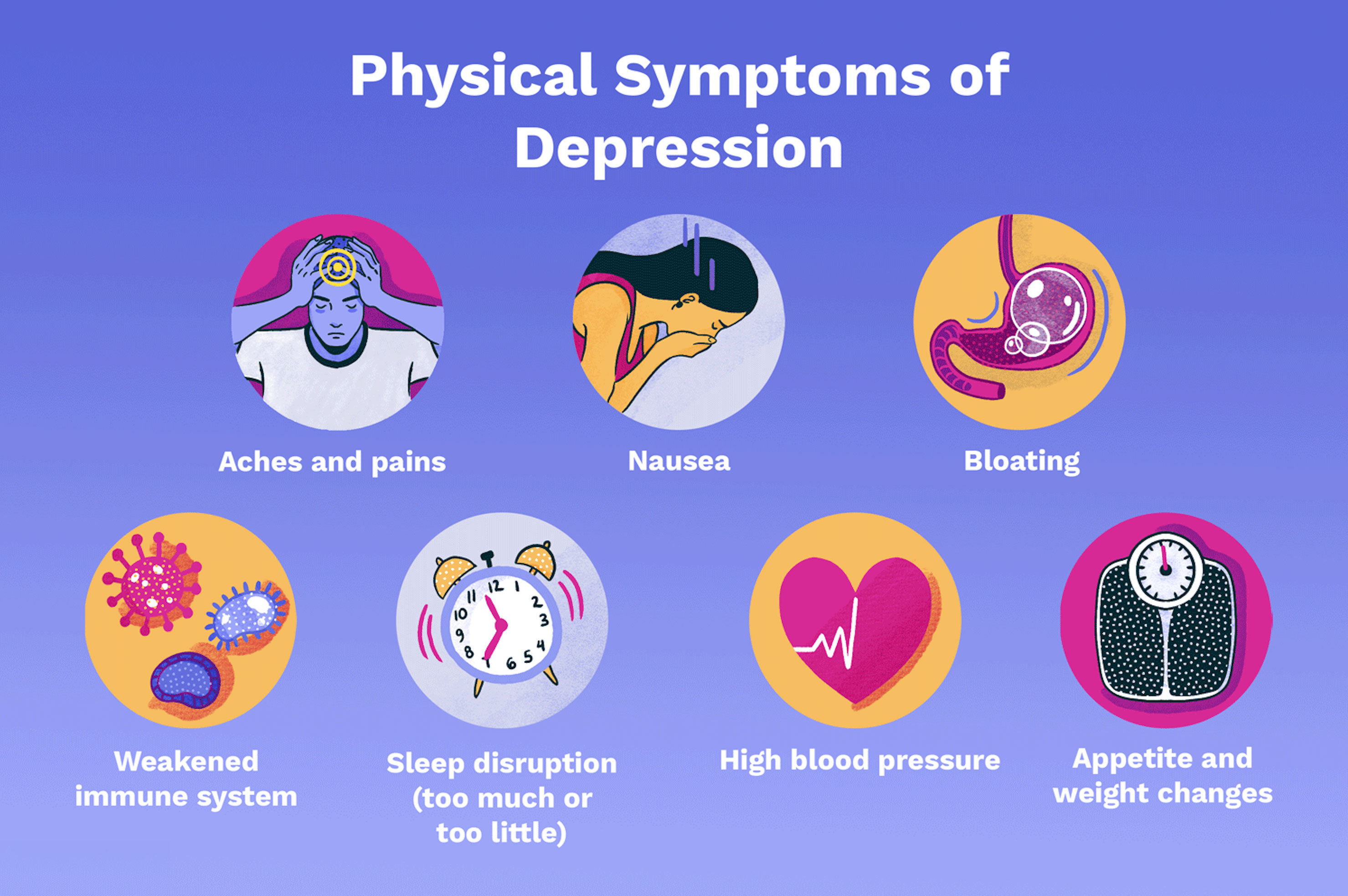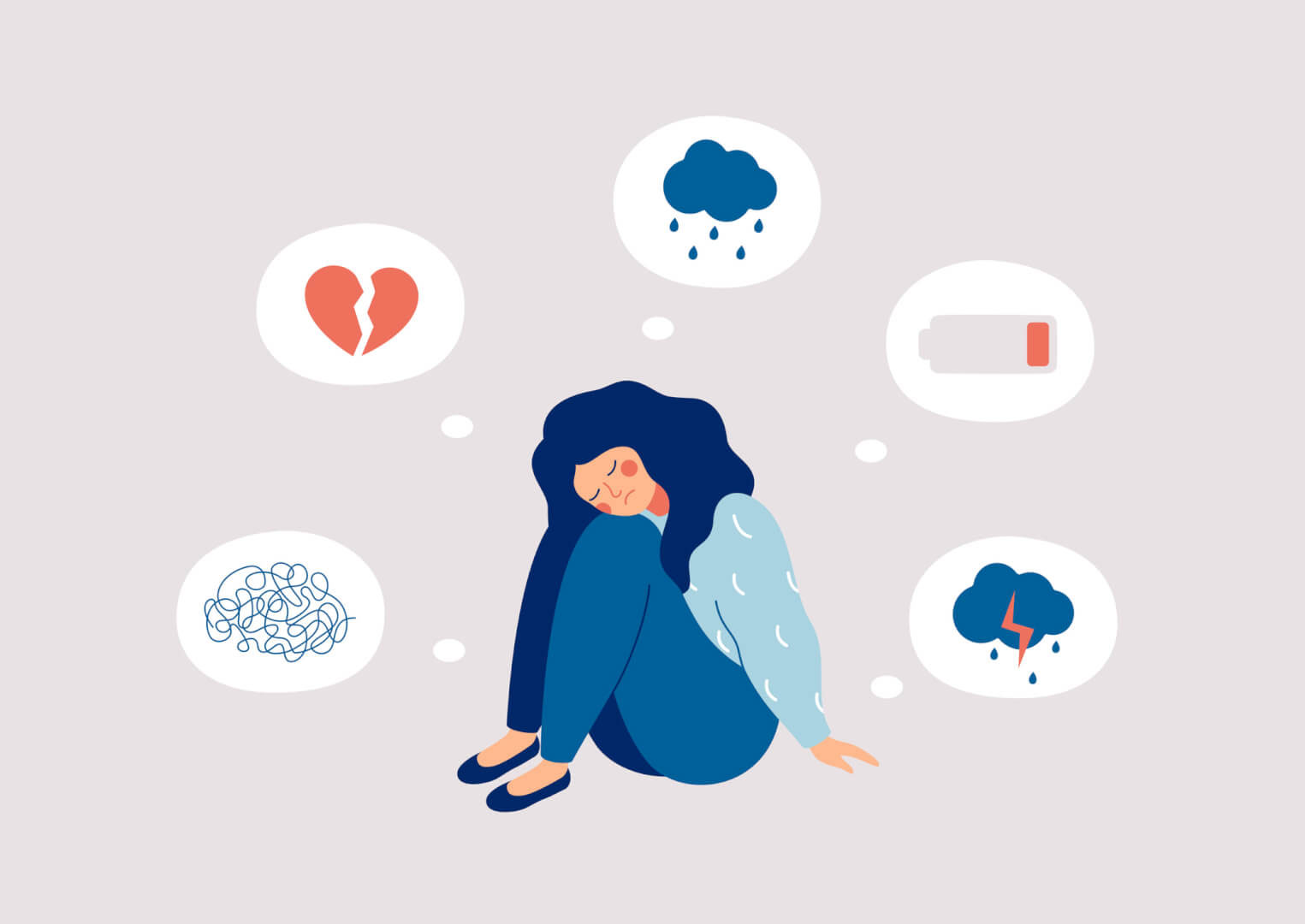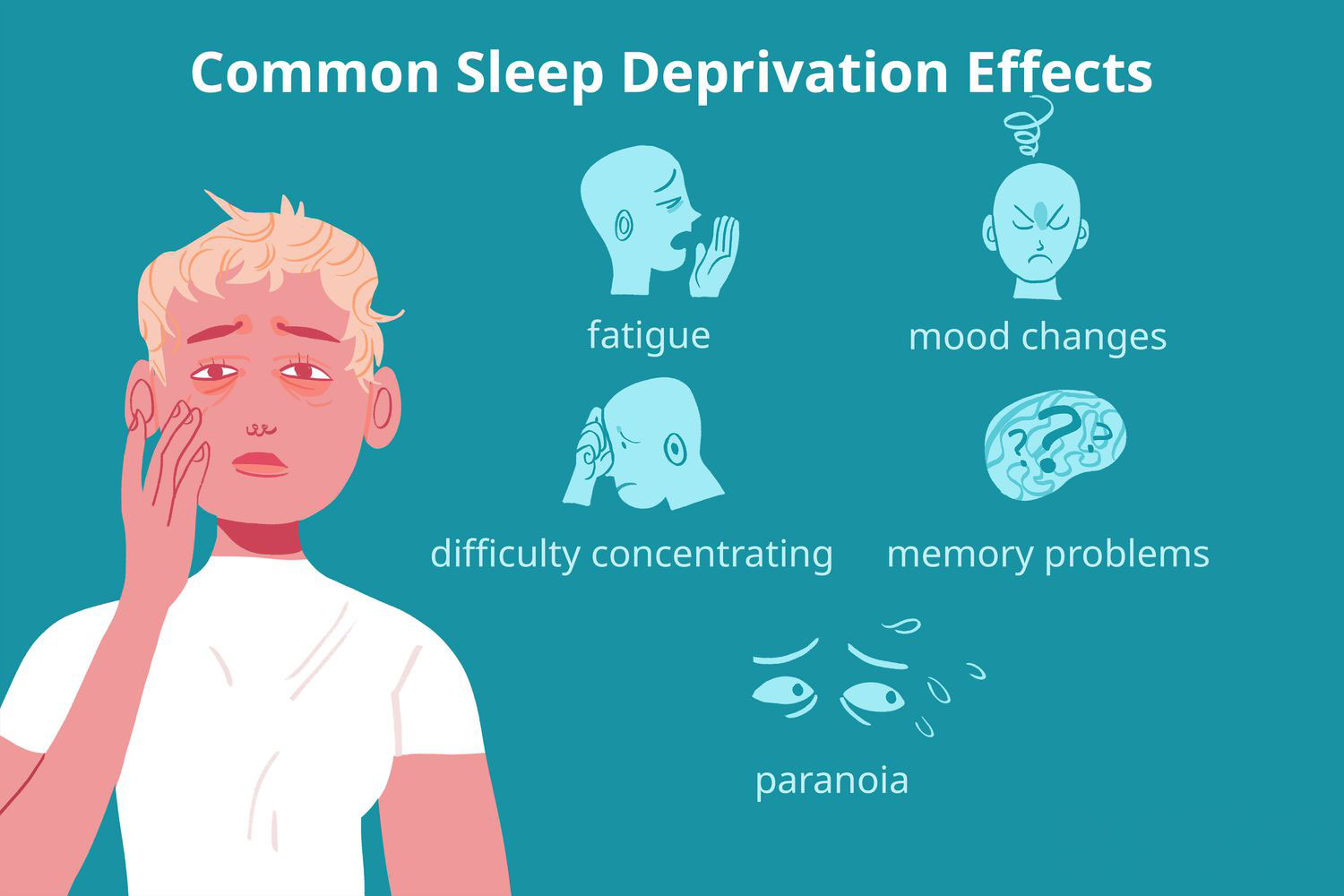Depression is not merely an emotional experience; it’s a multifaceted condition with profound implications for physical health. Delving into this intricate connection is essential for more effective symptom management and for promoting overall well-being. With its potential to trigger unexplained weight fluctuations, disrupt sleep patterns, and contribute to nutrient deficiencies, depression manifests in ways that extend beyond the mind, impacting the body significantly. Recognizing and exploring this interrelationship is vital for devising comprehensive strategies that address both mental and physical aspects, paving the way for a more holistic approach to health.
Can Depression Make You Lose Weight?

Additionally, the relationship between depression and weight loss is complex, as it can create a cycle that further exacerbates mental health struggles. Losing weight rapidly can lead to physical symptoms such as fatigue, weakness, and a weakened immune system, which may intensify feelings of depression and anxiety. In some cases, individuals may not even notice their weight loss until it becomes severe, due to the numbing effect of depression on self-awareness and body image. Therefore, it's crucial to address both the emotional and physical aspects of depression to prevent these changes from spiraling. Collaborative care involving mental health professionals and nutritionists can be beneficial in creating a balanced approach to treatment. Therapy and support groups provide a space for individuals to discuss their feelings and experiences, while a tailored nutrition plan can help re-establish healthy eating habits and regulate weight. Early intervention and a holistic approach can significantly improve both mental and physical health outcomes for those affected by depression-induced weight changes..
Can Iron Deficiency Cause Depression?

The inquiry, "Can iron deficiency cause depression?" highlights the profound connection between nutritional intake and emotional well-being. Essential in the biochemical pathway of synthesizing serotonin, often referred to as the happiness hormone, iron is crucial for maintaining balanced mental health. A shortage in iron levels disrupts the production of serotonin, potentially leading to feelings of depression and lethargy. Addressing this issue involves adopting a diet abundant in iron-rich foods—such as leafy green vegetables, lean meats, and fortified cereals—or consulting with a healthcare professional about the possible need for iron supplements. By mitigating iron deficiency, individuals can support their mental health and overall well-being, underscoring the necessity of integrating nutrition considerations into mental health strategies..
Depression: The Feeling Of Can't Get Out Of Bed

The phrase 'depression can't get out of bed' is a vivid description of the fatigue and lack of motivation that often accompanies depression. This overwhelming inertia speaks volumes about the profound impact depression can have on one's daily routine. Simple tasks, like getting out of bed or having a meal, can feel like climbing a mountain, casting a shadow over one's entire day. With each postponed task, the feeling of helplessness grows, further entrenching the deep-seated belief that change is out of reach. However, breaking this cycle is crucial for recovery. It often begins with setting small, manageable goals. Incremental achievements build momentum and gradually restore a sense of control and purpose. Equally important is seeking professional help—whether through therapy or medication—to navigate through the dense fog of depression. Regaining energy and motivation is a journey, and every step forward is a testament to resilience and hope..
How Stress Can Cause Eating Disorders And Depression

Stress is intricately linked to the body’s physical and mental health, often manifesting itself in harmful ways. As individuals grapple with persistent stress, they might turn to food for comfort or control, resulting in irregular eating patterns that can spiral into anorexia, binge eating, or other eating disorders. The biochemical response to stress involves the release of hormones like cortisol, which not only affects mood but also triggers cravings for high-calorie, sugary foods, leading to a vicious cycle of emotional eating. Furthermore, the persistent state of tension and anxiety can pave the way for depression, as the struggle to cope with stress, compounded by nutritional imbalances, clouds judgment and self-esteem. To break free from this cycle, it becomes imperative to identify specific stressors and employ effective stress management strategies. Techniques such as mindfulness practices, regular physical activity, and professional counseling offer avenues for reclaiming control, promoting healthier eating behaviors, and alleviating depressive symptoms. By prioritizing mental health and taking proactive steps to manage stress, individuals can find a holistic path to well-being that nurtures both the body and mind..
Physical Manifestations Of Depression

Depression's reach extends beyond the confines of mental health, casting a shadow over physical well-being as well. Chronic pain, persistent digestive issues, and recurrent headaches are among the many physical manifestations that can be intertwined with depressive disorders. The intricate link between these physical symptoms and mental health emphasizes the importance of a holistic approach to diagnosis and treatment. By recognizing this connection, healthcare providers can tailor interventions more effectively, addressing not just the emotional aspects but also the physiological ones. Patients are encouraged to provide a detailed account of both their mental and physical symptoms, facilitating a more precise and personalized care strategy. This comprehensive communication can pave the way for improved treatment outcomes, ensuring that all facets of a patient's health are addressed collaboratively..
Depression And The Immune System

It's essential to recognize that mental well-being and physical health are deeply interconnected. Recent studies suggest that chronic stress and the hormonal changes associated with depression can lead to a persistent state of inflammation, further compromising the body's defense mechanisms. As a result, those with depression are not only more prone to infections but also may experience slower recovery times. Adopting a holistic approach that includes mental health support, adequate sleep, mindfulness practices, and social connections can play a crucial role in strengthening the immune system. By addressing depression with comprehensive care, individuals can enhance their overall resilience and maintain a healthier physiological state..
The Role Of Sleep In Depression

Sleep disturbances are commonly reported by individuals with depression, which can further aggravate mood disorders. Poor sleep can intensify feelings of fatigue and irritability, creating a vicious cycle. Establishing a regular sleep routine and creating a conducive sleep environment can aid in breaking this cycle, enhancing both mental and physical well-being. Prioritizing sleep hygiene, such as limiting screen time before bed, reducing caffeine intake, and engaging in relaxation techniques, can be crucial steps in improving sleep quality. Additionally, incorporating activities like mindfulness meditation or gentle yoga can calm the mind and prepare the body for restful sleep. By addressing these issues, individuals can experience notable improvements in mood, increased energy levels, and a greater capacity to manage daily stressors, ultimately contributing to a more balanced and fulfilling life..
Exercise: A Natural Antidepressant

Incorporating exercise into daily life not only fosters physical well-being but also significantly enhances mental health. The release of endorphins during physical activity acts as a natural mood booster, serving as a valuable tool for alleviating symptoms of depression. Furthermore, exercise aids in reducing cortisol levels, which are often elevated in individuals experiencing chronic stress and anxiety. The structured nature of a workout routine can provide individuals with a much-needed sense of order and accomplishment, offering a positive focus away from negative thoughts. Additionally, engaging in group activities or classes can counteract feelings of isolation, fostering community support and encouraging social interaction. Importantly, exercise doesn't have to be strenuous to be effective; even moderate activities such as walking, yoga, or cycling can contribute to improved mental health. By making exercise a regular part of one's lifestyle, individuals battling depression can harness these manifold benefits to nurture both mind and body..
Seeking Professional Help

Despite understanding the link between depression and physical health, professional help is often necessary. Therapists, counselors, and medical professionals can provide necessary treatments that address both mental and physical symptoms. If depression severely impacts daily life, reaching out for help is a vital step towards recovery. This holistic approach can include a combination of psychotherapy, such as cognitive-behavioral therapy, and medication to manage biochemical imbalances. Moreover, medical professionals may also recommend lifestyle changes, such as regular exercise and dietary adjustments, which have been shown to alleviate some symptoms of depression. By seeking help, individuals not only gain access to a network of support but also empower themselves with strategies to cope with and overcome the challenges posed by depression. Remember, taking the first step towards professional help can be daunting, but it is a courageous decision that opens the door to a healthier, more balanced life..
In conclusion, acknowledging the complexity of depression and its profound effects on both mental and physical health is crucial in fostering a holistic approach to well-being. By recognizing the interwoven nature of these health aspects, individuals are better equipped to pursue effective interventions tailored to their unique needs, whether through lifestyle modifications or professional support. Emphasizing mental health as a fundamental component of overall health empowers individuals to make informed choices, ultimately contributing to a more balanced and fulfilling life. Through heightened awareness and proactive measures, society can continue to enhance well-being and reduce the stigma often associated with mental health struggles.


